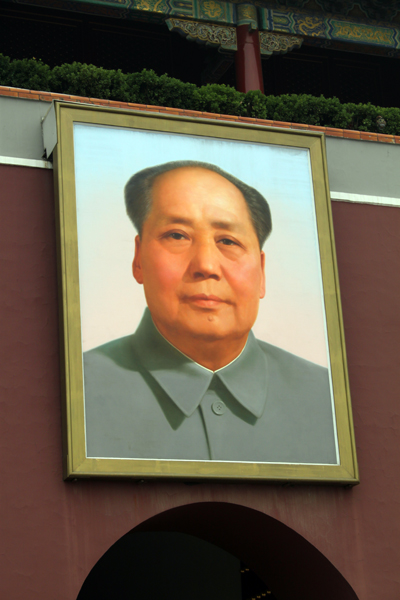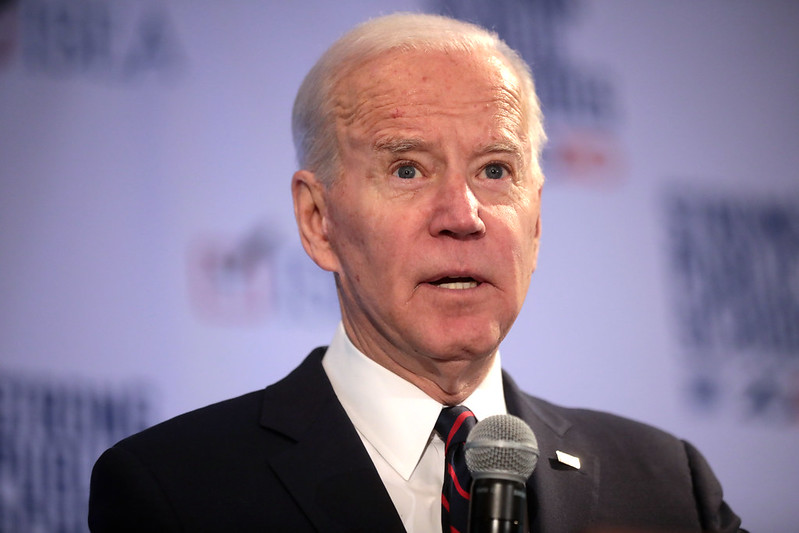1. Biden’s China Strategy: Balancing Competition and Cooperation
Since taking office, President Joe Biden and his administration have grappled with the formidable challenge posed by China’s increasingly assertive actions on the global stage. As the United States and its allies navigate this complex landscape, they must strike a delicate balance between competition and cooperation with the world’s second-largest economy.
The Core Pillars of Biden’s Strategy
Biden’s China strategy rests on three key pillars: invest, align, and compete. Let’s delve into each of these components:
1. Invest:
The strategy recognises that while the U.S. and China are fierce competitors, there are still areas where cooperation is possible. Issues like climate change and the ongoing battle against COVID-19 demand joint efforts from both nations. By investing in collaborative endeavours, the U.S. aims to address global challenges while maintaining a competitive edge.
2. Align:
The Biden administration has effectively rallied international cooperation against China’s threats to regional security. Compared to the previous administration, it has fostered stronger partnerships with Asian allies. However, there’s room for improvement. Encouraging Asian partners to bolster their military preparedness and capabilities remains a priority. Additionally, economic engagement is critical—rebuilding trust after the U.S. withdrawal from the Trans-Pacific Partnership (TPP) is essential.
3. Compete:
The overarching goal is clear: outcompete China while safeguarding a free and open Indo-Pacific region. Secretary of State Antony Blinken emphasises that the U.S. does not seek regime change in Beijing, a crucial clarification. But competing with China requires more than military might. The U.S. must invest in innovation, democracy, and human capital. These strengths, however, are eroding, necessitating a robust domestic strategy to bolster resources and maintain a competitive edge.
Challenges Ahead
While the rhetoric of pivoting to Asia is stronger than ever, actions must follow suit. The U.S. needs not only military commitment but also increased funding and personnel for diplomacy, aid, and investment. China’s economic prowess surpasses that of the former Soviet Union, making sustained efforts imperative. Strengthening innovation, democratic values, and human capital at home is equally vital for long-term success in the competition with China.
In summary, Biden’s China policy seeks to strike a delicate balance: competing where necessary, cooperating where possible, and preserving a stable Indo-Pacific region. As the geopolitical landscape evolves, the U.S. faces both opportunities and challenges in its quest to navigate the complexities of the U.S.-China relationship.
2. Foreign Direct Investment in China Hits Historic Lows

Flowcomm CC BY-SA 2.0 DEED
In recent years, China has been a magnet for foreign capital, attracting substantial investments from around the globe. However, a seismic shift has occurred: China’s FDI has plummeted to its lowest level in decades. This decline raises critical questions about the country’s economic landscape, policy shifts, and global investor sentiment.
The Numbers Speak Volumes
According to data released by the State Administration of Foreign Exchange, China reported a mere $33 billion in FDI for 2023—a stark contrast to previous years. This figure represents an 82% decline from the previous year and marks the lowest annual FDI inflow since 1993¹. The once-booming investment landscape now faces headwinds, leaving analysts and policymakers grappling with the implications.
Factors Behind the Decline
Several factors contribute to this unprecedented downturn:
1. Regulatory Changes:
China’s regulatory environment has become more complex, impacting investor confidence. Heightened scrutiny, stricter rules, and uncertainties surrounding market access have deterred potential investors.
2. Geopolitical Tensions:
Escalating geopolitical tensions—especially between China and major Western economies—have cast a shadow over investment decisions. Trade disputes, technology battles, and human rights concerns have strained relations and affected investment flows.
3. Structural Shifts:
China’s economy is undergoing structural transformations. As it transitions from export-led growth to domestic consumption and innovation, investors must adapt to new realities.
Navigating the New Landscape
While the decline in FDI is concerning, it also presents opportunities. Investors must recalibrate their strategies, diversify risk, and explore alternative markets. China remains a vast consumer base and a hub for technological innovation. As the dust settles, savvy investors will seek niches, collaborate with local partners, and leverage China’s evolving economic landscape.
In the pages that follow, we delve deeper into the reasons behind this historic decline, explore potential implications, and discuss strategies for investors navigating this uncharted territory.
3. AustralianSuper Announces £8 Billion Investment in the UK

Caleb JmuyB Unsplash
Australia’s largest pension fund, AustralianSuper, has made a significant commitment to the UK economy by announcing an £8 billion investment. This substantial infusion of capital is set to bolster the UK’s position as a global financial hub and drive growth in key sectors.
Key Points:
1. Investment Details:
- AustralianSuper’s fresh £8 billion investment will bring its total investment in the UK to over £18 billion by the end of the decade.
- This move underscores the fund’s confidence in the UK’s economic prospects and its commitment to long-term partnerships.
2. Focus Areas:
- The investment aims to unleash productive finance for innovative businesses operating in high-growth sectors. Notably, these include:
- Clean Energy: Supporting sustainable initiatives.
- Digital Infrastructure: Fuelling technological advancements.
3. Government Support:
- Chancellor Jeremy Hunt welcomed the investment, emphasising its alignment with the vision to make the UK the global capital for capital.
- The UK government has also announced substantial funding for advanced manufacturing, reinforcing its commitment to economic growth.
4. UK’s Attractiveness for Investment:
- The UK remains an attractive destination for global corporations. CEOs view it as a top-three priority country for investment, alongside the US and China.
- Recent pension fund reforms further enhance transparency and returns for savers, contributing to the overall investment climate.
5. Long-Term Impact:
- Prime Minister Rishi Sunak highlighted that the UK’s economy is turning a corner, and this investment will contribute to long-term change and prosperity.
- Chancellor Jeremy Hunt emphasised that AustralianSuper’s investment will strengthen the UK’s position as a leading financial centre.
6. AustralianSuper’s Growth:
- The Australian pension fund industry, with assets under management doubling every five years, recognises the UK’s potential.
- The success of pension reforms, similar to the UK’s Value for Money framework, serves as a model for sustainable growth.
- In summary, AustralianSuper’s £8 billion pledge represents a vote of confidence in the UK’s economic resilience and its role as a hub for innovation and investment. As the UK continues to attract global capital, this infusion of funds will drive progress, create wealth, and support public services.
Impacts
The £8 billion investment by AustralianSuper in the UK is poised to have several positive impacts on the economy:
1. Economic Growth and Job Creation:
- The infusion of capital will stimulate economic activity across various sectors. New projects, businesses, and infrastructure developments will create jobs and contribute to overall growth.
2. Sector-Specific Advancements:
- Clean Energy: The investment will support sustainable initiatives, such as renewable energy projects. This will reduce the UK’s carbon footprint and enhance energy security.
- Digital Infrastructure: Funding for technological advancements will improve connectivity, innovation, and efficiency.
3. Financial Hub Strengthening:
- The UK is already a global financial center. AustralianSuper’s investment reinforces this status, attracting other investors and businesses.
- It bolsters the UK’s position as a hub for financial services, fintech, and investment management.
4. Long-Term Stability:
- Pension funds like AustralianSuper invest with a long-term horizon. Their commitment signals stability and confidence in the UK’s economic prospects.
- The investment will contribute to the UK’s resilience against economic shocks.
5. Public Services and Infrastructure:
- The funds can be channelled into public services, healthcare, education, and transportation infrastructure.
- Improved infrastructure benefits citizens and businesses alike.
6. Collaboration and Partnerships:
- AustralianSuper’s investment fosters collaboration between Australia and the UK. It encourages knowledge exchange, joint ventures, and cross-border partnerships.
- In summary, this substantial investment represents a vote of confidence in the UK’s potential. It aligns with the government’s vision for economic growth, innovation, and prosperity. As AustralianSuper actively participates in shaping the UK’s future, the benefits will extend to citizens, businesses, and the broader economy.
Investment Areas
AustralianSuper is a forward-thinking pension fund that diversifies its investments across various asset classes. Here are some of their notable investment areas:
1. Listed Securities:
- AustralianSuper invests in a range of listed securities, including:
- Shares in the S&P/ASX 300 Index: These represent a broad cross-section of Australian companies.
- Exchange Traded Funds (ETFs): These provide exposure to various market segments.
- Listed Investment Companies (LICs): LICs pool funds to invest in a diversified portfolio.
- Term Deposits: These offer a fixed interest rate over a specified term.
2. Unlisted Assets:
- AustralianSuper also has interests in unlisted assets, which include:
- Infrastructure: Investments in airports, toll roads, and utilities.
- Property: Ownership of office blocks, shopping centers, and other real estate.
- Private Equity: Investments in private companies.
- Private Credit: Providing loans for commercial real estate and infrastructure projects³.
3. Ethical and Sustainable Investments:
- AustralianSuper actively considers environmental, social, and governance (ESG) factors in its investment decisions.
- They focus on generating strong, long-term returns while aligning with ethical and sustainable principles.
- In summary, AustralianSuper’s investment strategy combines traditional and innovative approaches, aiming to maximise returns for its members while contributing to a better future.
4. Unlocking the Potential: AI in Pharma for Africa

Glsun Mall Unsplash
The Fourth Industrial Revolution (4IR) has ushered in a wave of transformative technologies, and artificial intelligence (AI) stands at the forefront. While AI has made significant strides globally, its impact on healthcare, particularly in the pharmaceutical sector, remains a critical area of exploration. In this article, we delve into the unique context of Africa, where AI holds immense promise for revolutionising drug discovery, patient care, and regulatory processes.
The African Landscape
Africa, with its diverse population, rich biodiversity, and unique health challenges, presents both opportunities and complexities for AI adoption in pharmaceuticals. From tackling infectious diseases to addressing non-communicable conditions, the continent’s healthcare needs are multifaceted. Against this backdrop, AI emerges as a powerful ally, capable of enhancing drug development, optimising clinical trials, and improving healthcare delivery.
Navigating Regulatory Terrain
As we embark on this journey, it is essential to understand the regulatory landscape. While specific AI legislation is scarce in many African countries, ancillary frameworks play a crucial role. Our scoping exercise spans 12 African nations, including Botswana, Cameroon, Ghana, Kenya, Nigeria, and South Africa. We explore not only AI-specific regulations but also intersecting domains such as data protection, digital health, consumer rights, and intellectual property. The findings reveal a fragmented landscape, emphasising the need for continued regulatory development to position Africa for AI-driven healthcare advancements.
AI and Drug Discovery
In the realm of drug discovery, AI algorithms analyse vast datasets, accelerating the identification of potential drug candidates. From predicting molecular interactions to repurposing existing compounds, AI-driven approaches hold promise for more efficient and cost-effective drug development. Moreover, Africa’s rich traditional medicine practices can benefit from AI by integrating indigenous knowledge with modern scientific methods.
Patient-Centric Solutions
AI extends beyond laboratories and boardrooms—it reaches patients directly. Telemedicine, personalised treatment plans, and early disease detection are within reach through AI-powered solutions. Imagine AI chatbots guiding patients through symptom assessment or AI-driven diagnostics providing rapid malaria detection in remote villages. These innovations can bridge gaps in healthcare access and improve outcomes across the continent.
Collaboration and Ethical Considerations
Collaboration between academia, industry, and policymakers is vital. Partnerships can foster AI research, promote knowledge exchange, and address ethical dilemmas. Ensuring transparency, fairness, and privacy in AI applications is paramount. Additionally, addressing biases and ensuring equitable access to AI-driven healthcare are critical imperatives.
The Sojourn of AI in African Pharma
As we embark on this transformative journey, let us recognise that AI is not a panacea but a powerful tool. It requires thoughtful integration, ethical stewardship, and a commitment to equity. Africa’s pharmaceutical landscape stands at the cusp of change, and AI is poised to be a catalyst. Together, we can harness its potential to improve health outcomes, empower communities, and shape a brighter future for African healthcare.
5. Apply Now: $10 Million Converge Program AI Startup Fund

Ali Shah Lakhani Unsplash
OpenAI Startup Fund believes that powerful AI systems will ignite a Cambrian explosion of new products, services, and applications. But it’s not just about enhancing what’s already possible; it’s about revolutionising existing markets and creating entirely new ones.
Converge, our flagship program, is designed to accelerate founders who are building transformative companies powered by AI. Here’s what you need to know:
- Highly Selective: Converge is a five-week program for exceptional engineers, designers, researchers, and product builders. We’re seeking visionaries who use AI to reimagine products and industries.
- Equity Investment: Participants receive a $1 million equity investment from the OpenAI Startup Fund. This financial boost fuels innovation and propels AI-driven ventures forward.
- Early Access: Converge participants gain early access to OpenAI models and tailored programming specifically designed for AI companies. It’s a head start in the race to build groundbreaking applications.
- Guidance and Community: Through workshops, office hours, and events, you’ll engage with practitioners from the OpenAI team and beyond. We’ll tackle the challenges and seize the opportunities of a rapidly evolving AI landscape together.
- Diverse Founders Welcome: Whether you’re a pre-idea solo founder or part of a co-founding team, Converge invites you to apply. Prior experience with AI systems is not required—we value diversity and fresh perspectives.
Join the AI Revolution
Converge’s inaugural cohort will consist of approximately ten founding teams. Apply now and be part of shaping the future of powerful AI applications. The deadline for applications is November 25, 2022¹.
Ready to reimagine the world with AI? Apply today!
Apply Now! Deadline is January 26, 2024
6. Irish Logistics Industry Advocates for Improvements to Non-EU Work Permits Scheme

Andrew Ridley Unsplash
The Irish logistics industry trade body theFreight Transport Association (FTA) Ireland has raised its voice in favour of crucial reforms to the existing non-EU work permits scheme. As the demand for skilled labour continues to grow, particularly in the transport and logistics sector, it is imperative that we address the challenges faced by non-EU Heavy Goods Vehicle (HGV) drivers seeking employment with Irish companies.
The Current Landscape
While there have been recent improvements in the process, it remains costly for employers to navigate the intricacies of work permits for non-EU workers. The cumbersome license exchange element further compounds the issue. Aidan Flynn, Chief Executive of FTA Ireland, succinctly captures the sentiment: “Whilst the process has improved recently, it is costly for employers, and the license exchange element must improve.”
Family Considerations
In addition to the financial burden, FTA Ireland emphasises the need to consider the well-being of families. Drivers arriving in Ireland on a General Employment Permit should have the opportunity to be accompanied by their families. Furthermore, allowing family members to work would enhance their integration into Irish society.
Retention Challenges
The current situation is not sustainable. Shockingly, nearly 45% of non-EU workers leave their employment soon after starting work. This attrition rate underscores the urgency of addressing the scheme’s shortcomings. By fostering a more supportive environment, we can retain skilled workers and contribute to Ireland’s economic growth.
The Way Forward
FTA Ireland’s call for improvements is not merely a plea; it is a pragmatic step toward a more efficient and equitable system. As we navigate the complexities of global talent mobility, we must strike a balance between economic interests and the rights of workers. The proposed enhancements aim to achieve precisely that.
In the coming sections, we will delve deeper into the specific challenges faced by non-EU HGV drivers, explore potential solutions, and advocate for a work permits framework that benefits all stakeholders.
Gage Skidmore CC BY-SA 2.0 DEED






